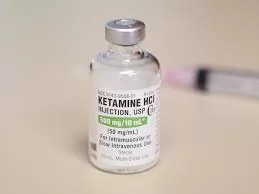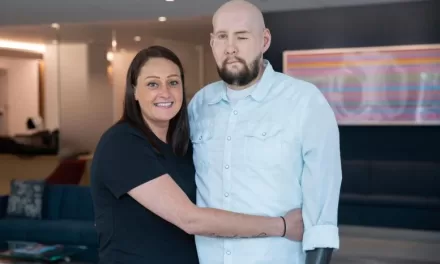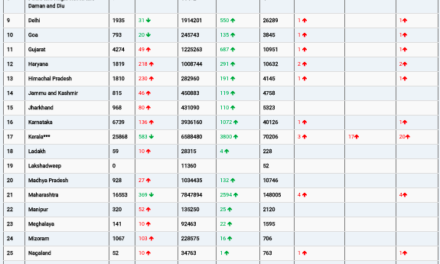February 3, 2024
In a groundbreaking study, researchers have demonstrated the efficacy of ketamine in treating severely depressed veterans, shedding light on its real-world application and offering hope for those suffering from treatment-resistant depression.
The study, led by Dr. Paul Pfeiffer and Dr. Avinash Hosanagar from the Michigan Medicine Department of Psychiatry and practitioners at the VA Ann Arbor Healthcare System, analyzed the outcomes of 215 veterans who received intravenous (IV) ketamine treatments at various Veterans Affairs hospitals nationwide. These veterans, unresponsive to traditional depression treatments like antidepressants or talk therapy, underwent a six-week course of ketamine infusions.
The results were remarkable, with nearly half of the participants experiencing a meaningful decrease in depression scores. About one quarter witnessed a reduction by half, and approximately 15% achieved full remission, offering a significant breakthrough for those who had exhausted other treatment options.
Dr. Pfeiffer emphasized the importance of the findings, noting that while ketamine may not bring universally dramatic improvements after just one infusion, the impact is a substantial advancement for individuals who have seen no progress through other avenues.
“It’s not a silver bullet. But when we see these patients in our clinic, who have been through every treatment available and nothing has worked, to have even a quarter achieve a significant measurable response is very good. We routinely get thanked for making a difference in their lives,” stated Dr. Pfeiffer.
The veterans involved in the study faced severe depression resistant to multiple treatments, with 70% also diagnosed with post-traumatic stress disorder (PTSD), 50% having an anxiety disorder, and significant percentages dealing with alcohol or substance use disorders.
Dr. Hosanagar highlighted the impact of IV ketamine, especially considering the complexity of mental health needs among the veterans. While it may not reverse the chronic nature of their conditions, ketamine offers a sense of hope, particularly due to its quicker impact compared to traditional antidepressants.
The research team analyzed data from the VA’s national patient record system over a 12-month period following the initial treatment. On average, patients underwent 18 infusions, showcasing sustained engagement with the treatment protocol and the potential for lasting benefits.
Beyond individual success stories, the study has broader implications. The dataset could inform future protocols for the use of IV ketamine in VA hospitals and beyond, potentially revolutionizing the treatment landscape for depression. The researchers view ketamine as part of an evolving strategy that includes other interventions such as repetitive transcranial magnetic stimulation (rTMS) and electroconvulsive therapy (ECT).
“It’s important to remember that ketamine is relatively new as a treatment, and there are multiple ways it can be delivered,” said Pfeiffer. “I think we’re in for an interesting decade of a changing landscape for the care of treatment-resistant depression.”
The study is published in the Journal of Clinical Psychiatry.











